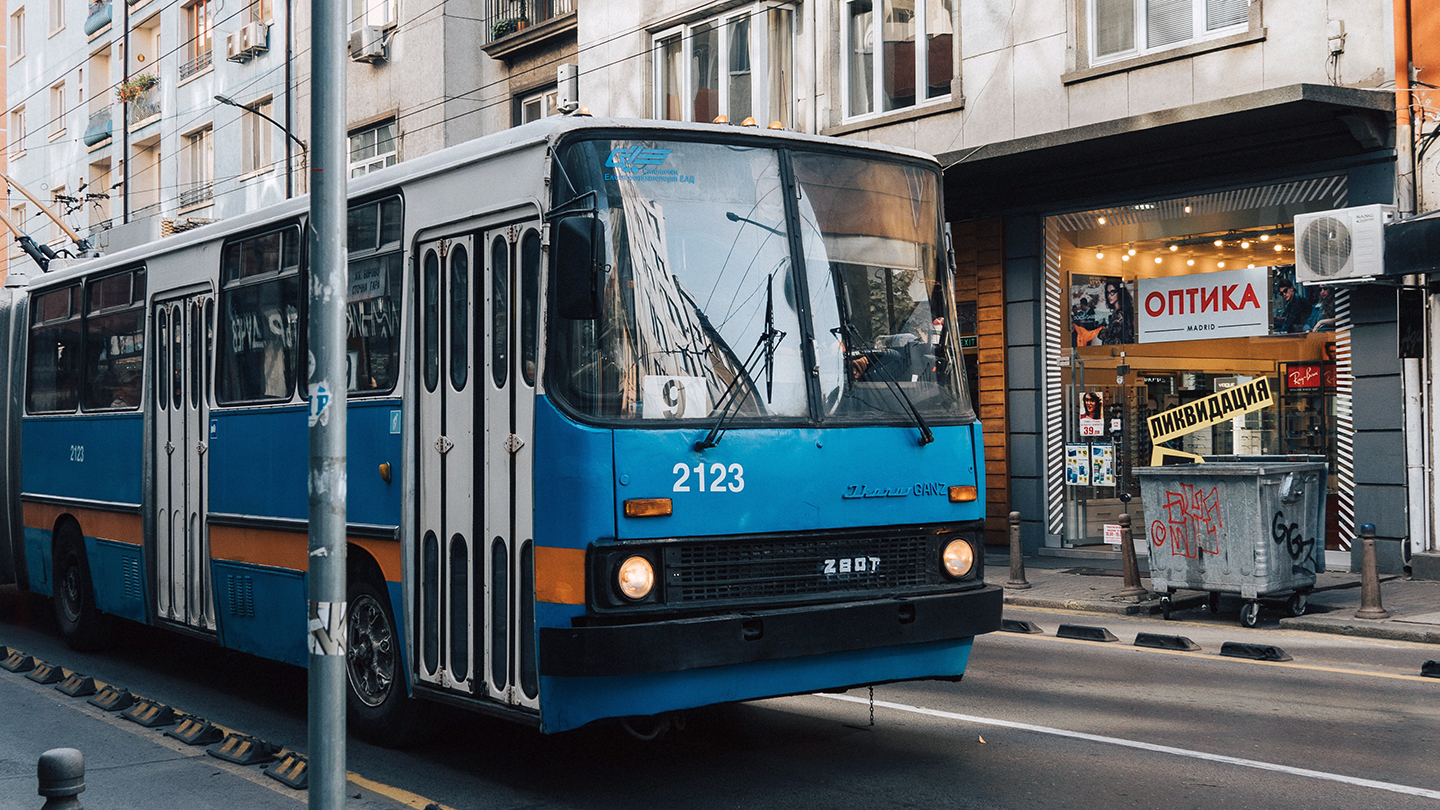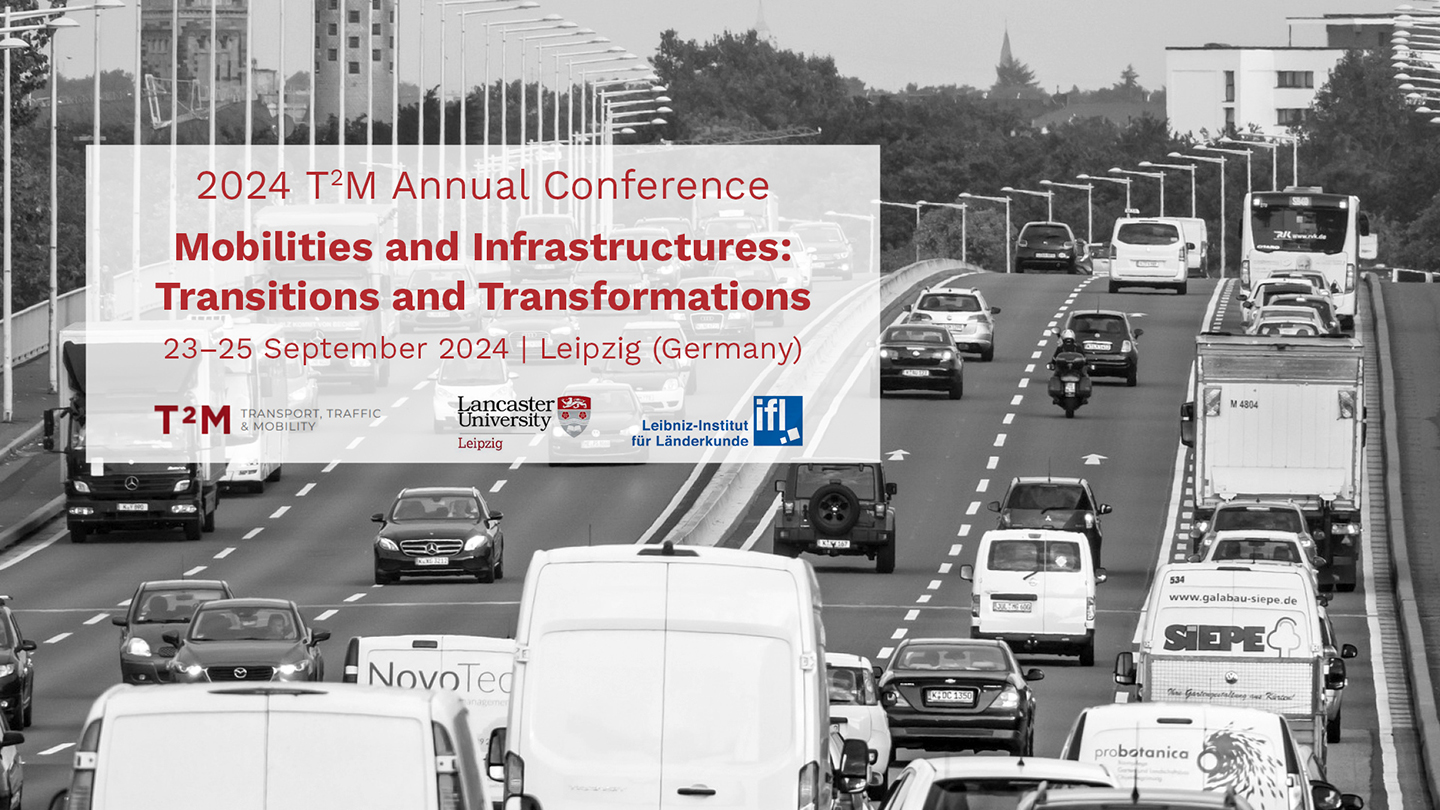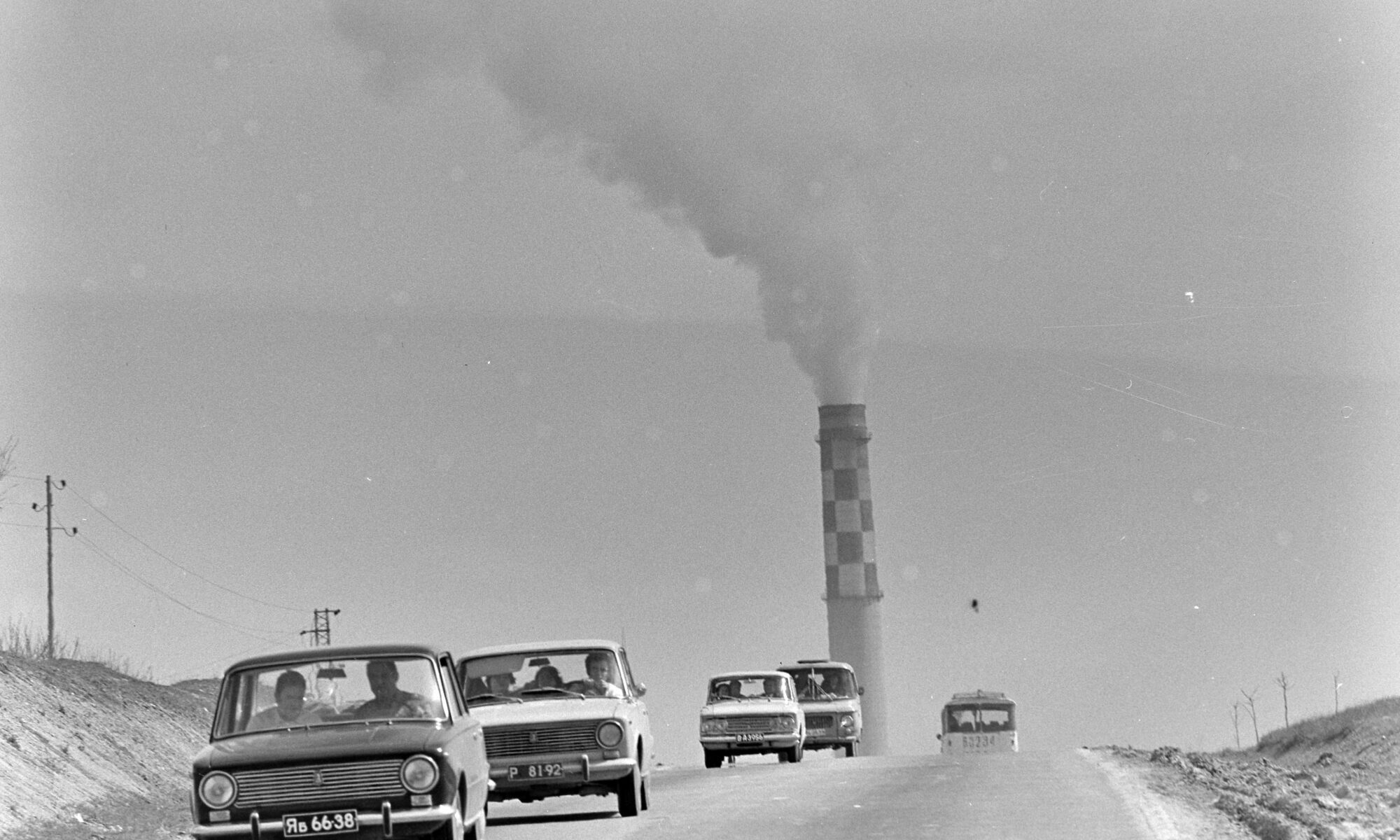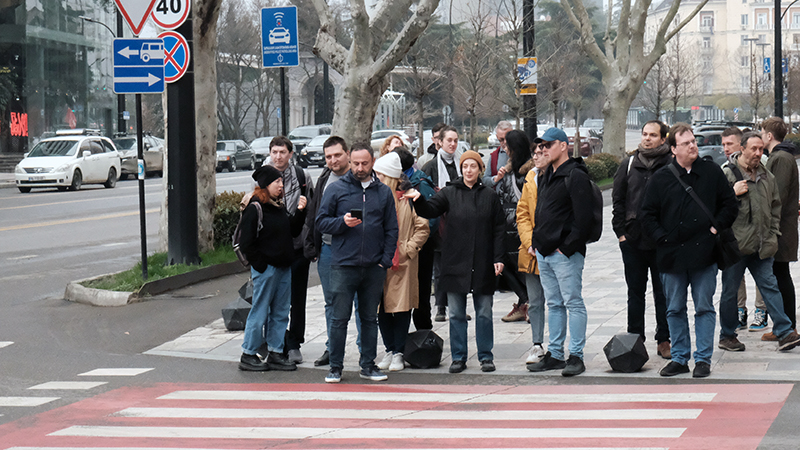The CoMoDe group is pleased to share open calls for three events that are important to us: the upcoming T2M, CATference and CASNiG conferences. As part of our team will be present, we would be happy to hear from you about organising joint sessions and panels.
Continue reading “Open Calls for T2M, CATference and CASNiG 2025 out now!”New Article by Lyubomir Pozharliev on Sofia’s Trolleybuses and their Decolonial Implications
The Bulgarian Sociologičeski Problemi Journal recently published their final issue of 2024, with the overarching topic being “From one Language into another”: Social Problems Seen Through the Eyes of Bulgarian Scholars in Foreign Countries (Issue Editors: Raia Apostolova, Neda Deneva). CoMoDe’s own Lyubomir Pozharliev contributed an intriguing article to the edition with the title Decolonial Insights into Public Transport in Sofia: “Eastern” Trolleybuses Vs. “Western” E-Buses.
Abstract: The battery industry, i.e. battery-powered electric cars and buses, has been on the rise for the past decade or so. Several municipalities in Eastern Europe, Central Asia and elsewhere in the world are promoting and advertising their progressiveness by being ready to introduce (or have already introduced) the new battery-electric buses wherever and whenever possible. On the other hand, trolleybus technology is still widespread in post-socialist countries and offers an electric alternative to the battery-powered bus. This paper attempts to address the introduction of the new technology from the per- spective of the older technology – the trolleybus one. Based on interviews with local experts and data from the Bulgarian capital, the paper will explore the potential of the decolonial perspective in addressing public transport developments in a post-socialist, Eastern European context.
The full article in Bulgarian, as part of Issue 2/56 in Sociologičeski Problemi Journal, can be accessed here (no free access).
New Article by Bermet Borubaeva and Egor Muleev on the Trolleybus Case in Bishkek
Published by the Berliner Gazette on the 11th of November 2024
In “Governing ‘Green’ Public Infrastructure: The Trolleybus Case in Bishkek,” Bermet Borubaeva and Egor Muleev take us on a ride through the tangled wires of Bishkek’s trolleybus saga—a tale of sustainability, bureaucracy, and a city at a crossroads. At the heart of the drama is Bishkek’s trolleybus system, the capital’s only electric public transport with enough capacity to avoid daily gridlock, yet it’s on the brink of extinction. City Hall, nudged by foreign consultants and seduced by shiny new e-buses, wants to ditch the old for the new—even though the old is green, functional, and beloved by the people. What follows is a classic case of public infrastructure caught in the gears of bureaucracy, where short-term decisions and backroom deals hold more weight than long-term planning.
The article further explores the role of local governance, workers’ struggles, and grassroots resistance in shaping the future of public infrastructure, using the trolleybus as a case study for broader issues in urban mobility and democratic accountability.
Read the whole article here.
Keynote Speaker | t2m Annual Conference 2024, Leipzig
We are thrilled to announce that Prof. Frauke Behrendt will be delivering the keynote lecture at the t2m Annual Conference in Leipzig in 2024. Her interdisciplinary research focuses on the intersection of mobility, sustainability, and digitalization.
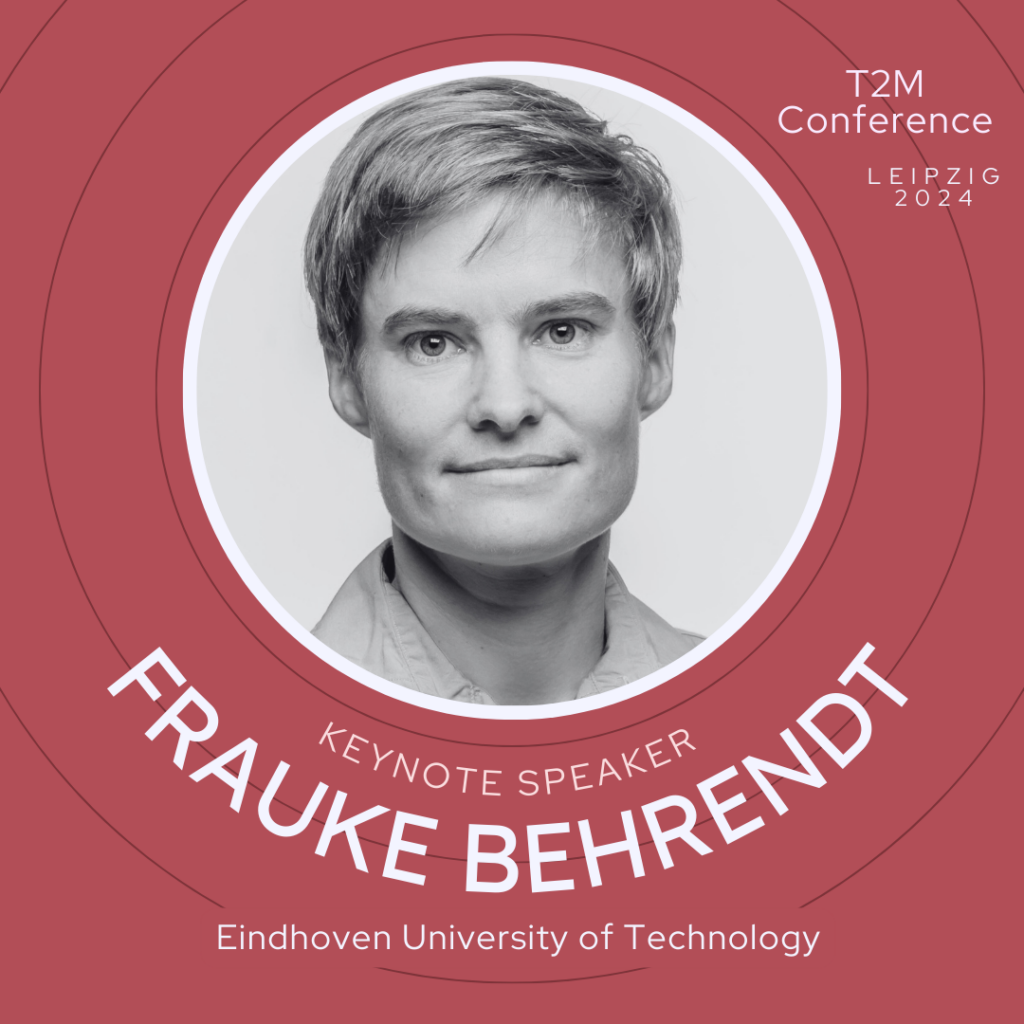
Prof. Behrendt’s current research on social justice includes work with Mimi Sheller on Mobility Data Justice, and exploring the implications of AI for the governance of mobility. Current work on micro-mobility comprises Dutch, UK, South Korean, and Chinese case studies, alongside research on the electric mobility transitions in the Global South, specifically around motorbikes and rickshaws. Frauke Behrendt is also involved in ELEVATE project for which she led the funding application. This project explores micromobility in the UK, in collaboration with Leeds, Oxford, and Brighton University. Her previous research focussed on smart cycling, AI and digital/data society, the musical use of mobile phones, as well as sonic interaction design.
2024 T2M ANNUAL CONFERENCE
23–25 September 2024, Leipzig, Germany
Organised by the Leibniz Institute for Regional Geography (IfL), and Lancaster University, Leipzig, Germany. Final Conference of the CoMoDe Project (Contentious Mobilities: Rethinking Mobility Transitions through a Decolonial Lens)
Mobilities and Infrastructures: Transitions and Transformations
Modern societies are experiencing striking technological, ecological, socio-economic and cultural as well as political challenges – with mobility questions at the forefront of these contentions. Actors and institutions across the globe increasingly recognize the need for systemic changes in the ways goods, people, ideas, policies and capital are set in motion – usually framed in the terms of “mobility transitions”. Green deal policies are drafted and “just transition” funds are set up, acknowledging that transition to carbon-free futures will require substantial resources to succeed, but also to avoid uneven and unfair socio-spatial effects on nations, regions, cities, and rural places. Existing research has already criticized mobility transition policies for their narrow normative assumptions, their reliance on large-scale infrastructures and technological innovations, and elaborated on the concepts of mobility justice and commoning mobility as a way of devising collective and collaborative means of shaping mobility transitions (Cresswell et. al 2021; Sheller 2018). It is therefore time to interrogate how and in which ways have “mobility transitions” been framed in different places at different times in their multifaceted histories.
Continue reading “2024 T2M ANNUAL CONFERENCE”Call for Papers for the international conference: CULTURE, INFRASTRUCTURE, MOBILITY
EXTENDED CALL – NEW DEADLINE: 27.06.2023
Sofia, 09–11 October 2023
The history of modern technological infrastructure spans over two centuries and includes heterogeneous phenomena: from railroads, sewerage and water pipes, to telecommunications and digital networks. Its construction resembles a techno-world where modern humans live free from the natural constraints of their existence. This is an environment with very different possibilities, problems, freedoms and dependencies. Large infrastructure projects have a decisive influence on social, economic, technical, societal and administrative processes in modern societies. They shape the relations between sedentariness and mobility, define the rhythms and styles of life, consciousness, self-esteem and identity of individuals and groups.
The development of infrastructures has a key relationship to historical change. Infrastructure projects depend on cultural conditions for their emergence, but they also have important consequences for cultural change. They are an instrument for domination and homogenization of territories, for interaction between anonymous individuals, and for the integration of social groups. Transportation and communication infrastructures transform “imagined modern communities” into a new social and techno-cultural reality. They have a strong integrative but also disintegrative function, contributing to the homogenization of populations, making them technological carriers of power ideologies: Eurocentric, colonial or nationalist.Finally, infrastructure projects have their own history: almost two hundred years of development. The progressivist ideology with which they have traditionally been associated has been criticized and reconsidered. But development has not come to a halt, techno- optimism has not disappeared. New, even more far-reaching infrastructure projects are taking the place of the old ones. The role of digital communication, the Internet galaxy and social networks for the integration and disintegration of late modern society is not yet explored: they offer new possibilities but perhaps also unimagined dangers.
We aim to explore the following topics:
- Infrastructures, mobility, migrations: technological nomads, migration flows and “landscapes”, transnational hybrids and technology driven melanges.
- Infrastructures, communication and geopolitics: colonization, decolonization, post- colonization, self-colonization, and their cultural impacts.
- Infrastructures as instruments of social engineering and everyday governance.
- Regulations and resistance in new digital mobility services: capital flows and power constellations.
- Standardization, normalization, and homogenization: leveling of inequalities oremergence of new social inequalities and cultural asymmetries?
- Public transport: mobility services in the face of new technologies and modernization policies; circuits of knowledge production, contested norms and notions of modernity.
- Transformation of infrastructures and the cultural history of cities: centers andperipheries, urban spaces, territories and imagination.
- Historical evolution of infrastructures and evolving social and cultural competencies for their use.
- Forms of infrastructure – forms of cultural imagination: changing concepts, rhetoricsand “aesthetics” of infrastructure (images of the machine; images of progress from secession to geometrism, constructivism and minimalism; retro aesthetics).
- Infrastructure, acceleration, cultural impact. Accelerating infrastructures and their psycho-cultural impact on the individual. Decaying infrastructures, infrastructural disasters, and apocalyptic visions.
Please send a 250-word abstract and a 50-word bio to L_Pozharliev@leibniz-ifl.de and jdamianova@gmail.com no later than 27th of June 2023.
The conference is free of charge. Graduates, doctoral students and participants with financial difficulties whose submissions have been accepted may apply for travel grants of up to € 250 (in the form of reimbursement). A limited number of grants are available and will be given on an individual basis. Applications should detail the cost of travel and the amount applied for in an email to l_pozharliev@leibniz-ifl.de.
Confirmed Keynote Speakers:
- Prof. Dr. Dirk van Laak, Chair at the Institute for 19th to 21st Century History, University of Leipzig
- Prof. Dr. Arnold Bartezky, Head of the Department of Culture and Imagination, Coordinator of Art History at the Leibniz Institute for History and Culture of Eastern Europe (GWZO), Leipzig
- Dr. Wladimir Sgibnev, Leibniz-Institut für Länderkunde. Coordinator of the Research GroupMobilities and Migration and Head of the Leibniz Junior Research Group “CoMoDe”, Leipzig
Organising committee:
Dr. Lyubomir Pozharliev, Leibniz-Institut für Länderkunde Postdoctoral researcher, member of the research group II of the Leibniz Science Campus “Eastern Europe – Global Area” (EEGA), Leipzig
Prof. Alexander Kiossev, Head of the Cultural Centre at Sofia University
Prof. Daniela Koleva, Department of History and Theory of Culture, Sofia University
Dr. Zhana Damyanova, Maison des sciences de l’homme et de la société, Sofia
Knowledge Production in Public Transport: Georgian Symposium of the CoMoDe group
During the third weekend of March 2023, the team of the IfL project Contentious mobilities through a decolonial lens (CoMoDe) hosted – jointly with the Ilia State University – a Symposium in Tbilisi, Georgia. The name of the event was “Knowledge Production in Public Transport – Normativities. Actors. Outcomes”. Since Lela Rekhviashvili, a postdoctoral researcher within CoMoDe, had been studying the public transport reform in Tbilisi, her expertise in the field shaped the conceptual framework of the symposium. Furthermore, a former employee of the Tbilisi city hall – Elene Khundzadze – who was a fellowship-holder at IfL – amply contributed with to the conceptual and organisational preparation of the event.
Continue reading “Knowledge Production in Public Transport: Georgian Symposium of the CoMoDe group”
Microtransit – Alternative mobility offers in Germany, 2022
In the scope of the PUTSPACE project at IfL, Lukas Adolphi, Wladimir Sgibnev and Tonio Weicker published an open-access article on their research and cartographic visualizations on alternative mobility offers or so-called microtransit in Germany in the Journal of Transport Geography.
The paper discusses the role and possible impact of microtransits within mobility transitions through analyzing its hybrid nature in between car-usage and public transport in connection with its further potentials, limitations and corporate structures. The authors dive deep into the current status of microtransit distribution and trends. It is taken into consideration that any growth in this field of mobility happens rather slow and is subject to several limiting factors, so that project initiations rely heavily on experimental clauses by local governments and the existing forms of microtransit are rather diverse, small-scale and cater to very different groups of citizens. Going from there, the article aims to frame a future perspective of microtransit in Germany and sheds a light on this mobility phenomenon with all its struggles and promises through a unique methodology and via providing the first officially published, nationwide mapping in this form of all known microtransit offers.
Read the whole article here.
The interactive version of the mapping, initially published by Wladimir Sgibnev and Lukas Adolphi at Nationalatlas Aktuell can be found here.
Beyond fear and abandonment: public transport resilience during the COVID-19 pandemic
New in: A collaborative paper by Louise Sträuli, Tauri Tuvikene, Tonio Weicker, Wojciech Kębłowski, Wladimir Sgibnev, Peter Timko and Marcus Finbom, published in the scope of the Putspace project at IfL.
´The authors investigate how the Covid-19 pandemic affected both the accessibility of urban public transport and its structures themselves. It takes a closer look on the specific governmental regulations regarding urban mobility and points out the struggles of people who were especially affected by the Covid regulations on urban transport systems.
In an extensive mixed-method study, data on the behavior, emotions and struggles of public transport users and urban citizens from Berlin, Brussels, Stockholm and Tallinn has been collected. It is shown, how the regulations transformed general passenger behavior in terms of usage, distances and frequency of travel and that certain narratives and passengers emotions as well as their socio-economic conditions have to be taken into account when trying to understand the realm of public transport in times of crisis.
Read the full open-access paper here!
Mobility and Extractivism: Disrupting the Logistical Ecosystem of Capitalism
A new collaborative text by Tim Leibert, Lela Rekhviashvili and Wladimir Sgibnev explores the complex, structural and historic linkage between capitalist neo-extractivism and mobilities of globalization. It brings up the argument, that facets of mobility should always be taken into consideration when talking about extractivism and calls for a general shift in perspective on debates regarding sustainable development and mobility transitions. The authors argue that mobilities of a consumerist culture almost automatically exacerbate extractivism at the cost of the global south and exploited regions on multiple levels.
The text was originally published in german on the “Berliner Gazette” as a contribution to the ongoing series on the BG platform “After Extractivism”, which can be read here. The english version was published on Mediapart.

